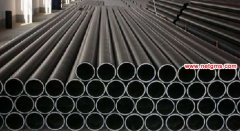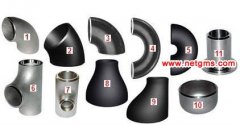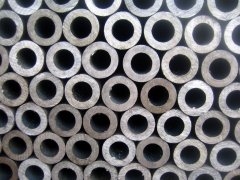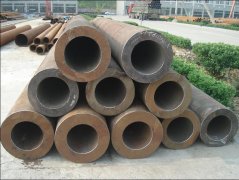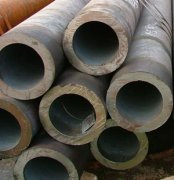 Seamless steel pipe
Seamless steel pipe- pipeline
- OCTG
- ASTM pipe
- API pipe
- Heavy Wall Steel Pipe
- Boiler steel pipes
- Casing and tubing
 Welded steel pipe
Welded steel pipe- spiral steel pipe
- ERW pipe
- SSAW pipe
- DSAW pipe
- LSAW pipe
 Carbon steel pipe
Carbon steel pipe- Black steel pipe
- fluid pipe
- Pipeline Coating,2PE 3PE
- Structural steel pipe
- Mild Steel Pipe
 Alloy pipe
Alloy pipe galvanized steel pipe
galvanized steel pipe stainless steel pipe
stainless steel pipe steel pipe schedule
steel pipe schedule pipe fittings
pipe fittings
General knowledge of alloy steel pipe: introduction, chemical composition, heat treatment performance, melting equipment
General knowledge of alloy steel pipe: introduction, chemical composition, heat treatment performance, melting equipment
1. Introduction to alloy steel pipe
Alloy steel pipes have a hollow cross section and are used in large quantities as pipes for transporting fluids, such as pipes for transporting petroleum, natural gas, coal gas, water and certain solid materials. Compared with solid steel such as round steel, the alloy steel pipe has a lighter weight when the bending and torsional strength are the same.
Alloy steel pipe has good mechanical properties. Its main purpose is for high-voltage and high-temperature pipelines and equipment such as power plants, nuclear power, high-pressure boilers, high-temperature superheaters and reheaters. It is made of high-quality carbon steel, alloy structural steel and stainless steel. Heat-resistant steel is made of hot-rolled (extruded, expanded) or cold-rolled (drawn). The biggest advantage can be 100% recycled. It meets the national strategy of environmental protection, energy saving and resource conservation. The national policy encourages the expansion of high-pressure alloy tubes. Application area. At present, China's alloy tube consumption accounts for half of the total amount of steel in developed countries, and the expansion of alloy tube use provides a broader space for industry development.
According to the research of the expert group of the alloy pipe branch of China Special Steel Association, the demand for long-term high-pressure alloy pipe in China will increase by 10-12% annually. The alloy pipe is defined by the production material (that is, the material). As the name suggests, it is the pipe made of alloy; and the seamless pipe is defined by the production process (seam seamless), which is different from the seamless pipe. There are seam pipes, including straight seam welded pipes and spiral pipes.
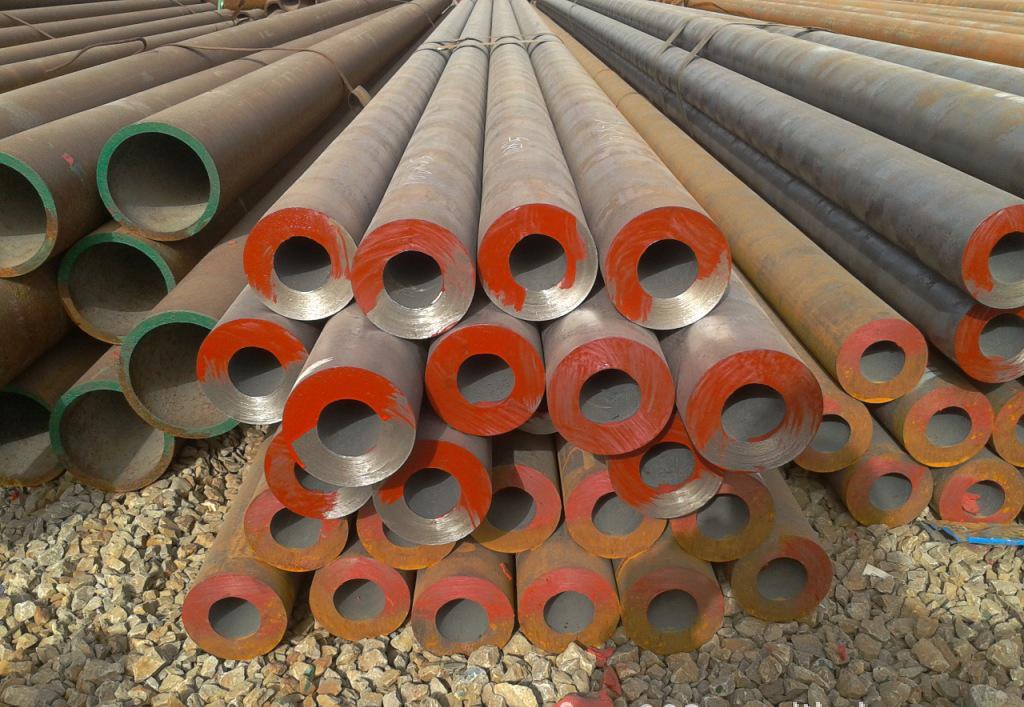
2, chemical composition
C: 0.08 to 0.15
Si: 0.17 to 0.37
Mn: 0.40 to 0.70
Cr: 0.90 to 1.20
Mo: 0.25 to 0.35
V: 0.15 to 0.30
3. The influence of alloying elements
Carbon (C) carbon is the main element in steel. As the carbon content in steel increases, the room temperature strength and hardness of steel increase, but the plasticity, toughness and welding energy decrease. Therefore, the carbon content of steel for boiler pressure components The amount is generally 0.1% to 0.25%.
Manganese (Mn) manganese can increase the room temperature strength, hardness and wear resistance of steel. When the content is high, the welding stress increases. Manganese can increase the high temperature short-term strength of steel, but has no obvious influence on the permanent strength and creep limit. .
Molybdenum (Mo) and chromium (Cr) molybdenum and chromium can increase the strength of steel. Chromium can improve the high temperature structure stability of steel - resist pearlite spheroidization, graphitization, high temperature oxidation resistance and improve resistance Corrosive. However, steel with high chromium content has strong welding crack sensitivity and large temperature difference stress. Molybdenum has a significant effect on improving the long-lasting high strength of steel. Molybdenum has a tendency to be graphitized to add chromium to prevent disease, and chromium embrittlement can be used. Molybdenum can be prevented, and the coexistence of the two can improve the comprehensive performance of steel.
Vanadium (V) vanadium can improve the stability of high temperature microstructure in steel, and can also offset the adverse effect of chromium on welding performance. Titanium (Ti) titanium can improve steel Durable strength, in alloy steel, can also improve the welding performance of steel. Tungsten (W) tungsten can improve the long-term strength and high temperature hardness of steel. Silicon (Si) silicon can improve the strength, wear resistance and oxidation resistance of steel. When coexisting with chromium, it can improve the resistance to high temperature oxidation, and also improve the corrosion resistance in the flue gas. 铌(Nb)铌 has the same effect as titanium, which can improve the thermal strength of steel. Boron (B) boron The outstanding function is to improve the hardenability of steel. It can improve the heat strength and durability of steel in heat-resistant steel. Plasticity.
4, heat treatment performance
The heat treatment process of alloy steel is divided into low carbon alloy steel, medium carbon alloy steel and high carbon alloy steel. Low carbon alloy steel generally needs carburizing, quenching and tempering; medium carbon alloy steel generally needs to be quenched and tempered. Surface quenching is also carried out as needed; high carbon alloy steels generally require quenching and tempering. For example: low carbon alloy steel 18CrMnTi, 920~950 °C carburizing, 850~870 °C oil quenching, tempering 180~200 °C, surface hardness HRC58~67, core HRC30~45; medium carbon alloy steel 40CrMnMo, 840~850 °C oil quenching, 630~650°C water or oil, hardness HB 302~341; high carbon alloy steel Cr12MoV, 950~1000°C oil quenching, 150~180°C tempering, HRC60~64.
5, the smelting process
Smelting equipment: 坩埚 resistance furnace, gas continuous melting furnace.
Process specification: The materials used in smelting should be placed in a dry and non-polluting place, and treated before use to remove surface contaminants before use.
Refining treatment: removal of gases, non-metallic inclusions and other harmful elements in the alloy.
上一篇:What is a flange connection system?
下一篇:没有了
New Update Pipe List
-
Water line pipe
Water line pipe Size:4" to 60" carbon steel seamless pipeline, piplines,ERW line pipes,Spiral pipes.SSAW COATING PIPE LINE : [ Spiral Submerged Arc Welding (SAWH) steel pipeline]. Hot rolled seamless steel pipe production
Hot rolled seamless steel pipe production. API 5L Line Pipes X42
API 5L Line Pipes X42,API 5L: A25, A, B, X42, X46, X52, X56, X60, X65, X70, X80 API 5CT: J55 K 55 M65 N80 L 80 C 90 T 95 P110 H40 Q125 CS-90 SCS-95 SCS-80 TCS-110T . API 5l A53 ERW Pipe
API 5l A53 ERW Pipe,ERW steel pipe JCEO Wall thickness:0.5mm-25 ISO,TUV,AD,PED cert. GB/T3091-2001 Material include Q235 20# 16Mn(Q345,Q215) .
Hot Click PRO
-
ASTM A106/A53 GR.B 32 INCH Carbon Seamless pipe
1. Carbon Seamless Steel Pipes of API 5L/ ASTM A106/A53 GR.B.2. Hot Expanded Seamless Steel Pipes.3. ERW Steel Pipe.. Thin-walled steel material parameters Reverse
Thin-walled steel material parameters Reverse,Advanced design and manufacture of the State Key Laboratory of auto body Hunan University, Changsha, 4100822. Abstract: identify the problem for thin-walled steel material parameters, using a. ANSI steel pipe schedule chart - SCH40 SCH80 seamless ERW pi
ANSI steel pipe schedule chart - SCH40 SCH80 seamless ERW pipe . A53 SCH40 Welded Carbon Steel Pipe
A53 SCH40 Welded Carbon Steel Pipe, Grade: A53 GR. B, API 5L GRB, API 5CT GR. B, ST37, ST52 Outside Diameter: 1/2"-72" Wall Thinkness: 0.5mm-80mm sch40--schXXS..
- Carbon steel pipe Standard
- ASTM A106 pipe
- ASTM A53 pipe
- ASTM A192 pipe
- ASTM A252 pipe
- ASTM A179 pipe
- DIN 1629 pipe
- DIN 17175 pipe
- Alloy pipe Standard
- ASTM A335 pipe
- ASTM A210 pipe
- ASTM A213 pipe
- ASTM A234 pipe
- ASTM A519 pipe
- Stainless pipe metrial
- 304, 304L, 304SS pipe
- 310, 310S pipe
- 316, 316L pipe
- Pipe Fitting Metrial
- Carbon steel: A234 WPB pipe
- Stainless steel: 304,316 pipe
- Alloy steel: A234 WP5 WP9 WP11 WP22 pipe


